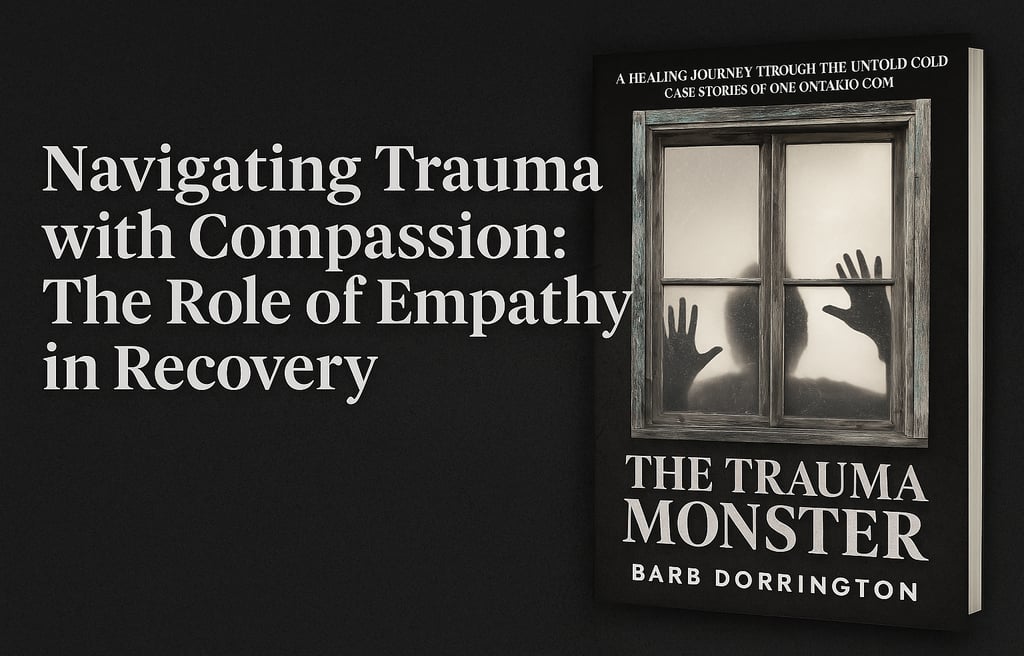Navigating Trauma with Compassion: The Role of Empathy in Recovery
Barb Dorrington
6/23/20251 min read


When facing the daunting challenge of trauma recovery, one powerful ally often underestimated is empathy. In her illuminating book, The Trauma Monster, Barb Dorrington highlights empathy not merely as kindness but as a profound, transformative force essential for true healing.
Empathy begins with compassion towards oneself, a critical yet often neglected step in trauma recovery. Survivors frequently grapple with self-blame, guilt, or shame, compounding their emotional burdens. Learning to approach oneself with empathy means recognizing the validity of your pain and responding to it with patience, kindness, and understanding.
Equally important is extending empathy towards others. Trauma can isolate individuals, making them feel disconnected from those around them. Cultivating empathy helps survivors rebuild connections, nurturing trust and emotional intimacy. Empathy fosters deeper relationships by allowing individuals to feel genuinely seen, heard, and understood.
Here are ways to cultivate empathy during your recovery:
1. Practice Self-Compassion: Regularly remind yourself that healing is a journey. Treat your setbacks not as failures, but as opportunities to practice kindness toward yourself.
2. Active Listening: Practice genuinely listening to others without judgment. Active listening fosters empathy and strengthens emotional bonds.
3. Reflective Journaling: Write about your feelings and experiences from an empathetic perspective. This practice can enhance self-awareness and promote emotional healing.
4. Mindfulness and Meditation: Incorporate mindfulness practices that focus on compassionate awareness of your emotional state, helping manage reactions and enhance emotional resilience.
5. Seek Supportive Communities: Engage with groups or communities dedicated to healing trauma. Sharing and listening within these empathetic environments can profoundly reinforce your healing journey.
In The Trauma Monster, Barb Dorrington underscores that empathy is not passive; it is an active, ongoing choice essential to trauma recovery. By consciously cultivating empathy, you nurture a compassionate environment where authentic healing and growth can thrive, transforming trauma into a powerful catalyst for deeper human connection and self-awareness.


